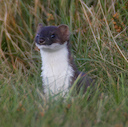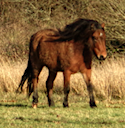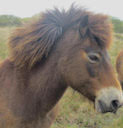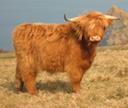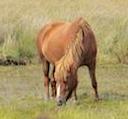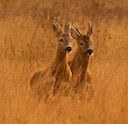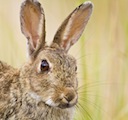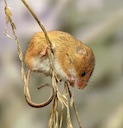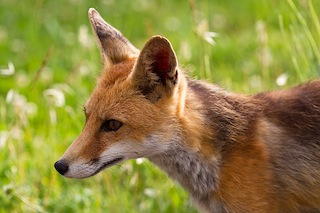Category: Land Mammals
-
Stoat
Windmill Farm is a good place to see Stoats. Photo: Richard Birchett
-
Dartmoor Pony
Dartmoor Ponies are a favourite breed for conservation grazing. You can find them on our East Cornwall National Nature Reserves. Photo: Debbie Sea-Kay
-
Badger
With its striking black and white striped head, the badger is one of our most instantly recognisable mammals. Photo: James Lindsey
-
Exmoor Pony
This tough pony is another of our hard-working grazers, helping to conserve the heathland and coastal habitats of The Lizard. Photo: Steve Townsend
-
Highland Cattle
The hardiness of this distinctive breed makes it an excellent choice for conservation grazing. Photo: Steve Townsend
-
Shetland Pony
We might be at the other end of the land from the far northern isles, but you can still spot Shetland ponies on The Lizard, doing their bit for conservation. […]
-
Roe Deer
Although more common in the east and centre of Cornwall, Roe Deer have more recently been spreading to the west, including the Lizard. Windmill Farm is a good place to […]
-
Rabbit
We’re very familiar with rabbits in Britain, but did you know they are in serious decline in their native range in south-west Europe? Photo: © Natural England/Allan Drewitt
-
Harvest Mouse
You are more likely to spot the closely woven nest of a Harvest Mouse than the animal itself. Photo: ©Natural England/Julian Dowse
-
Otter
The shy Otter can be hard to spot, but look for its spraints along river courses and by the coast. Photo: ©Natural England/Allan Drewitt
-
Hedgehog
Hedgehogs are not numerous on The Lizard, but keep an eye out on those late evening strolls from spring to autumn. Photo: © Natural England/Allan Drewitt
-
Red Fox
The Red Fox is largely nocturnal creature, but can sometimes be spotted in the daytime. Photo: © Natural England/Allan Drewitt

